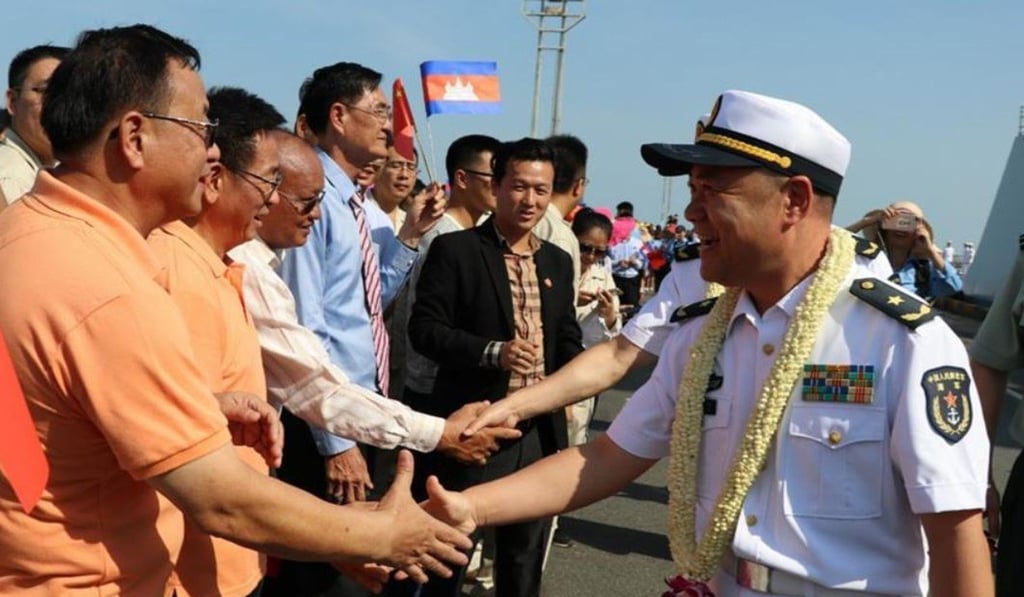Base instinct: how Chinese visit to Cambodia reignited rumour of navy port plan
- Docking of warships revived speculation about implications of close military ties and whether Beijing wants to strengthen its hand in disputed waters

Fresh from celebrating four decades since the downfall of the former Khmer Rouge rulers, Cambodia welcomed several Chinese warships. Just days after last week’s anniversary, the vessels docked in the resort city of Sihanoukville, reviving concerns about the implications of close military ties between the two countries and the possibility China is planning a naval base in the kingdom.
Cambodia’s leader Hun Sen swatted away similar rumours about Beijing’s intentions last November, after receiving a letter from US Vice-President Mike Pence.

“The constitution of Cambodia bans the presence of foreign troops or military bases in its territory … whether naval forces, infantry forces or air forces,” the premier said, bluntly dismissing Washington’s concerns.
But after the navy visit, analysts said there may be some substance to the idea.